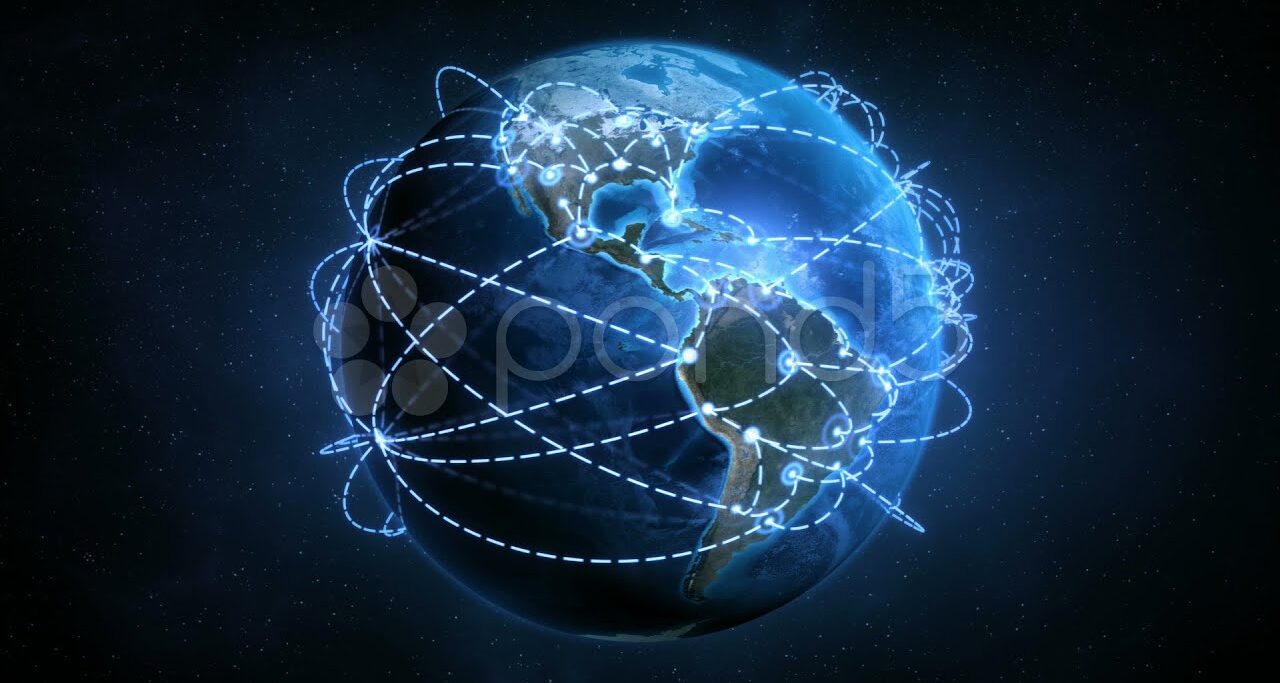Blockchain Expands Across Global Industries in 2025

Blockchain Expands Across Industries to be mistaken for Bitcoin and other digital coins. By 2025, this creative technology will shed its crypto-only image and revolutionize companies’ worldwide operations. Blockchain is enhancing banking, healthcare, real estate, and energy processes, as well as firm trust and efficiency. Blockchain is not a negative force; things are moving forward. It is under great emphasis.
Digital currencies and intelligent banks
Blockchain innovation originates in banks. Mastercard said this year it will introduce a digital asset platform based on blockchain technologies. Like Venmo does with payments, this network aims to simplify tokenized asset movement and handling for banks, retailers, and customers. Business titans Standard Chartered and JPMorgan are looking at use cases that include identity verification, tokenizing assets, and fast payments.
Regulation opinions are weakening concurrently. The FDIC has changed a rule mandating banks obtain specific clearance to offer blockchain or bitcoin services. This tendency could cause traditional financial institutions to adopt quickly. Furthermore, tokenized transactions, real-time settlement, and improved compliance tools will be available.
Blockchain Opening Supply Chain Transparency
Blockchain enables transportation monitoring, waste prevention, and fraud prevention, among other decades-old problems. Companies track products from manufacture to sale using blockchain. Using IBM’s Food Trust blockchain, Walmart finds wasted food in seconds, lowering waste and increasing food safety.
More stores and manufacturers worldwide will apply such solutions by 2025. Thus, real-time product origin, condition, and authenticity checks will be enabled. Perfect transparency is redefining supply chain responsibility.
Digitally encrypted medical notes
Data in healthcare is a fragile and messy environment. Blockchain is mostly solving this problem. Decentralized ledgers guarantee patient information. These documents used to be scattered and hackable. This gives patients more control over their medical background and helps to stop access modifications.

Estonia leads this sector, with 95% of its healthcare system on blockchain. Medicalchain and other health IT companies are building global systems that simultaneously compile data, provide remote consultations, and cut data duplication. This results in safer, faster, and smarter treatment.
Housing market moves technologically
Real estate has always suffered from paperwork, middlemen, and laborious procedures. By 2025, Bitcoin will rewrite that narrative. Tokenizing and digitizing property records lets smart contracts flow without incident. Self-executing contracts accelerate transactions, reduce middlemen, and help lower fraud.
Some allow private real estate investments to be based on blockchains. Blockchain Expands Across Industries, This lets smaller investors join real estate markets hitherto reserved for bigger ones, simplifies ownership, and creates fresh worldwide investing prospects.
Market for Energy: Talk to people
Blockchain is fueling new energy use and generation. Decentralized energy trading systems let people sell extra solar power to the grid or neighbors without working through utility companies. Blockchain guarantees openness; smart contracts handle small transactions automatically.
These systems encourage long-term use and energy independence by being employed in areas with decent renewable energy sources. As world energy prices change, blockchain’s capacity to create more fair and community-driven markets becomes ever more important.
Good Habits and Major Transformations in 2025
Blockchain is increasingly of interest to institutions. This year, Prometheum, a blockchain securities company, raised $20 million to expand its controlled tokenized asset services. Their platform provides digital equities and bonds compliant with U.S. standards. Blockchain connects with conventional finance.
In December 2024, Bitcoin hit $100,000. This momentous occurrence was brought about by growing investor confidence in good U.S. policies. This surge has raised worldwide interest in infrastructure and blockchain finance.
Numerous fresh trends are developing. Artificial intelligence blockchain systems can produce prediction models, self-driving data analysis, and smarter contracts. Before blockchain can be widely applied, a key problem, including interoperability between blockchains, has to be fixed. Proof-of-stake sustainable blockchain solutions benefit the surroundings.
Summary
Blockchain Expands Across Industries by more than just cryptocurrency aficionados and IT companies. As a fundamental instrument, it fuels creativity in many different sectors. It can enable real-time financial transactions, safe medical data, supply line improvement, and energy trading modification. Technology Is Revolutionizing, Blockchain systems can accomplish more as they grow greener, faster, and more intelligent. Companies and governments embracing this shift will be the first positioned to lead the dispersed, open, and efficient future economy.
